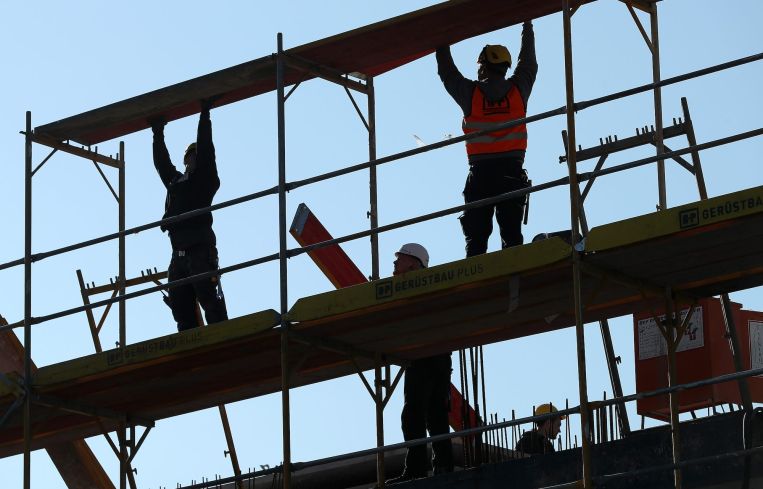These Two New York City Housing Bills Will Do More Harm Than Good
By Jolie Milstein November 15, 2023 10:30 am
reprints
Faced with a rising housing crisis impacting constituents in every district, it is no surprise that the New York City Council is proposing a suite of bills ostensibly designed to promote good affordable housing jobs and deepen affordability on projects. Unfortunately, two bills under consideration will do more harm than good: They will dramatically slow the housing pipeline, limit the economic impact of development, and exacerbate the crisis the bills aim to address.
The first is an effort to implement prevailing wage standards on affordable housing developments that utilize public funds, which, in practice, means every affordable housing proposal. This proposal, while well meaning, would cripple the affordable housing construction pipeline.
A New York State Association for Affordable Housing analysis conducted in October 2023 in response to the bill found that requiring the prevailing wage on construction would increase the cost of affordable housing by $194.94 per square foot — an increase of $194,940 per 1,000 square feet, or approximately double the current city capital allocated per unit.

It is easy to see why this is problematic. Consider a notional development — a large, phased project to bring 1,000 new extremely low and low-income (ELLA) units online. Today, the project would be financed with tax-exempt bonds from the city’s Housing Development Corporation and 4 percent Low-Income Housing Tax Credits from the IRS; and the financing gap would be covered by approximately $200 million in city capital from the Department of Housing Preservation and Development.
Under a prevailing wage mandate, each unit would require approximately $195,000 of additional city capital on top of the approximately $200,000 of subsidy the city is already spending per unit. That is wildly out of sync with current financing. The approximately $200 million of city subsidy allocated to the project would only only half the project.
This is the basic math of affordable housing, which is financed with a complex blend of government subsidy to fund below-market rent. It is so tenuous that several large, all-affordable housing projects recently approved by the council similar to the hypothetical example above would either be dramatically reduced in scope by a prevailing wage mandate or canceled. Or, the projects’ affordability would be badly compromised — rents would have to be increased dramatically, and the most vulnerable New Yorkers would be left out in the cold.
That is not an outcome any party should applaud, and the many construction workers already earning wages well above the city median wage would lose jobs — even if the lucky few who were able to work on some projects would earn more. It would also mean that only the largest contractors would be able to handle the increased costs, potentially leaving minority- and women-owned business enterprises (MWBEs) and small businesses out in the cold. And, to put a number to these increased costs, prevailing wage, including fringe, for a carpenter is $229,000 on an annualized basis.
The second bill is one that has floated around the council for years: an ideological push to prioritize community land trusts and nonprofits in the sale of public lands. This may sound innocuous or even appealing to those who mistrust private for-profit developers, but — like the prevailing wage bill — it falls apart upon further review.
Given the extreme housing shortage, it makes little sense to limit the number of entities able to develop affordable housing based on an arbitrary marker like their tax status. There is a good reason that the city does not use this standard when procuring other goods like city vehicles.
Finally, the bill is a solution in search of a problem. There is no evidence that nonprofits offer deeper affordability over a longer period of time than for-profit entities, despite the rhetoric advanced by some progressives. Rather, permanent affordability is already guaranteed via a remainder interest — a requirement in the disposition agreement that reverts the site to city ownership if the developer fails to renew the regulatory agreement upon its expiration.
Similarly, affordability is determined by the terms of a request for proposal, not by the applicant’s tax status. And for-profit developers must already partner with an MWBE or not-for-profit entity for at least 25 percent ownership to even bid on city-owned land in the first place.
These pieces of legislation double down on the roadblocks contributing to the dwindling pipeline of residential housing, with devastating economic effects. New York state is short over 655,940 units of affordable housing for extremely low-income residents, and this number continues to escalate year over year. According to a recent report from the Real Estate Board of New York, New York City is on pace to meet just 20 percent of its housing goal, reflecting an ongoing decline in production during a housing shortage.
This is particularly of concern as numerous studies have found that adding new housing helps hold down rent growth, even when new units do not have explicit affordability requirements.
When the pipeline of affordable housing slows, so do the economic benefits that come with development. Every 100 units of housing generates 121 construction jobs, 65 indirect jobs, 50 induced jobs, and $46 million in economic spending during construction. After the building is complete, these units generate about $10 million in annual economic spending and 34 permanent jobs. Adding new housing supply, especially if that housing is affordable for low-income renters, helps improve the affordability of that neighborhood.
If passed and implemented, these two bills will mitigate those positive impacts, limit our ability to respond to the crisis, and even reduce the number of good jobs available to workers. That is counterproductive. Instead, the City Council should focus on bills that would boost production and enlarge the pie for everyone. That is what New York needs and deserves.
Milstein is president and CEO of The New York State Association for Affordable Housing.



